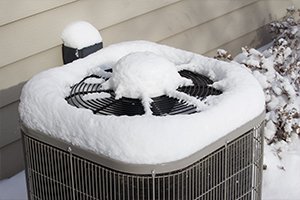Pros & Cons: HVAC Covers

It can be tempting to cover your outdoor air conditioning unit when cool weather moves in, and you don’t need it during the winter months. But is it a good idea? Here are the pros and cons of HVAC covers to help you decide.
HVAC Cover Pros
Manufacturers design air conditioning units to live outside and to withstand most weather conditions. They’re made of durable materials and can still function even in the rainiest weather. But there are some pros to covering them up in the winter. They include:
- Preventing debris, including leaves, branches, and other vegetation, from getting into the unit through the fan vents
- Reducing weight from leaves or ice that can damage the coils and potentially the fan and fan blades
HVAC Cover Cons
It’s not usually necessary to put a cover on your air conditioner unit in the winter when it’s not in use. These cover cons illustrate why.
- An HVAC cover can trap moisture leading to water building up in the unit. This extra moisture causes the metal components to rust and corrode.
- Mold can grow under a cover when there isn’t adequate ventilation.
- A cover can hold in the cold and lead to frozen coils and issues with the electrical wiring.
- Mice and other pests can find a nice cozy home in an HVAC unit under a protective cover and can eat through wiring and cause other damage.
If you’re still on the fence about whether you should cover your HVAC unit in the winter months, you can get more information on all things heating and air conditioning-related by contacting the pros at your local McCall’s Supply, Inc.


